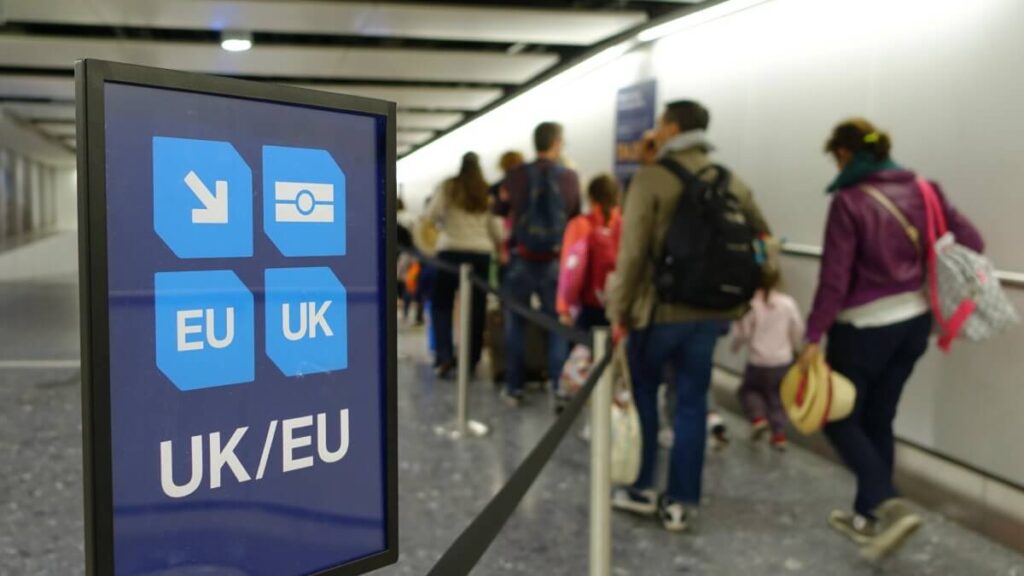British tourists will not be able to use the e-gates when reaching the bloc until the EU’s new border system – the Entry/Exit System (EES) – is introduced.
This was said in the detailed text agreement of the EU and UK, and it means that the British tourists will have to undergo passport stamping and wait in queues until at least October 2025 or even 2026, Schengen.News reports.
No legal barriers to e-gate use for British nationals travelling to and from EU member states after the introduction of the EU entry/exit system (EES).
The UK’s Prime Minister said at the beginning of this week that he has already urged the EU member states to allow all UK passport holders to use the e-gates as soon as possible.
He argued that this move would have a significant impact on the Britons travel experiences to the bloc and considered it one of the key elements of the deal with the EU.
According to Prime Minister Starmer, the agreement on the e-gates would put an end to the long queues British tourists face at passport controls and would make travel to the bloc easier and hassle-free.
This partnership helps British holidaymakers, who will be able to use e-gates when they travel to Europe, ending those huge queues at passport control.
Spain Has Already Confirmed That British Travellers Will Be Able to Use E-Gates at Its Airports Once the System Begins Operating
Spain is one of the member states that has already confirmed that British citizens will be able to use the e-gates at its airports soon.
A source from the Spanish Ministry of Interior said that e-gates can be used by British citizens once the EES begins operating. It further explained that to use the e-gates at Spanish airports, British tourists will need to hold a valid travel document.
When the EU orders the entry/exit border control system to begin operating, British citizens will be able to use electronic entry points as long as they have a valid travel document, such as a passport.
While there have been positive developments on the matter, the Association of British Travel Agents said that it is clear that the deal “won’t impact this summer”, the Guardian explains. The Association further noted that those planning to reach the EU in the next months will have to get their passports stamped.
The EU Council and Parliament agreed earlier this week to introduce the EES gradually. Once operational, the new system will digitally register entries and exits, fingerprints and facial images, and passport information on non-EU nationals entering the EU for short-term stays.

